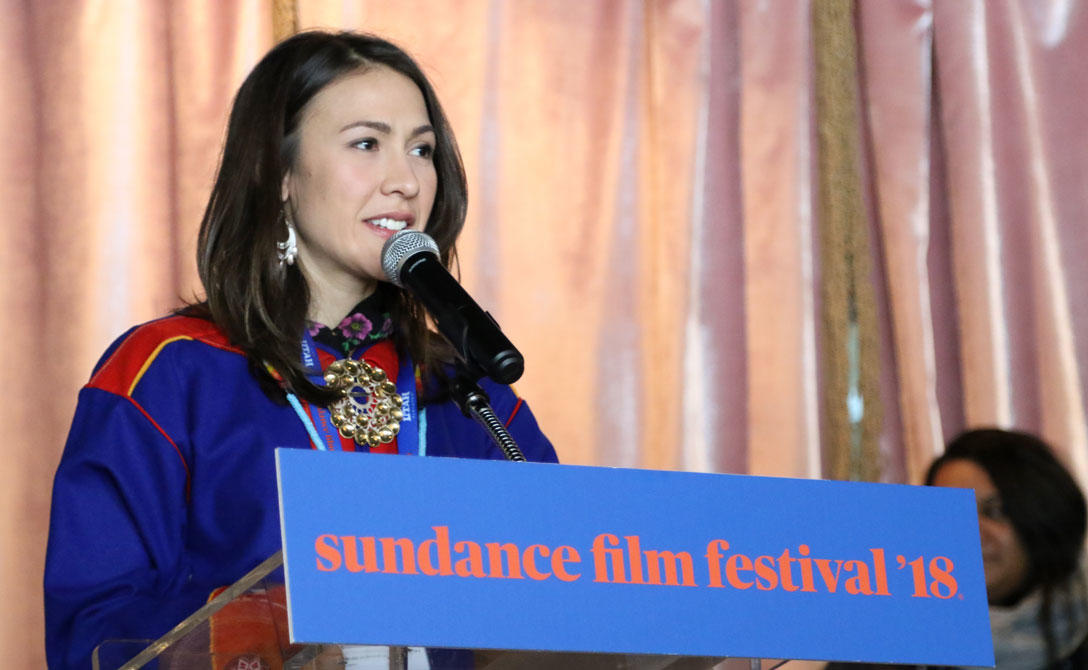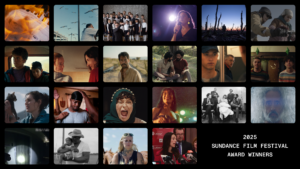© 2018 Sundance Institute | Abbey Hoekzema
Sundance Institute
The Sundance Institute Merata Mita Fellowship for Indigenous Women Artists pays tribute to the immense artistic contributions and memory of Merata Mita (Ngati Pikiao/Ngai te Rangi). Merata served as an advisor and artistic director to the Sundance Institute’s Native Filmmakers Lab from 2000 to 2009, where she mentored and championed many of the top Indigenous talent in today’s film industry.
In commemoration of Indigenous Peoples’ Day Sundance Institute’s Indigenous Program is pleased to issue a call for projects for the Merata Mita Fellowship for Indigenous Women Artists. Below are 2018 Merata Mita Fellow Elle-Máijá Tailfeathers’ (Blackfoot/Sámi) remarks from the Native Forum Breakfast at the 2018 Sundance Film Festival.
I was not fortunate enough to know Merata Mita, but I feel like I know her through all of the wonderful people that she’s touched. She supported so many Indigenous filmmakers over the years. Her loss is still profoundly felt today.
Merata Mita’s work was decolonial to the core. It was a celebration of our resilience, and it was an affirmation of our sovereignty. And again, even though I never had the chance to meet her, I feel like she is one of the grandmothers that Indigenous filmmakers like myself have to thank. Her work has nurtured and nourished us for many generations.
I’ve thought about her work and what Indigenous screen sovereignty means, and I realized that thinking wasn’t getting me that far. So I decided to turn inward and really feel sovereignty. And my first instinct was home. Sovereignty is home. Home is more than the land. Home is the people we love. Home is the collision of the past, the present, and the future.
Home is all of the ancestors who brought us to where we are today. Home is the future generations that will uphold our ways—and our connection to home. Home is our stories—our songs, our ceremonies. As an Indigenous feminist, home is my grandmothers, my mother, my sisters, my aunts, my nieces. Home is my body, my mind, and my spirit. And sovereignty is home. Sovereignty is the right home. And sovereignty is relational.
So for me sovereignty is a daily practice. What that means is that it’s reclamation of the Indigenous feminine. It’s a celebration of Indigenous sexuality. It’s an embrace of Indigenous gender non-binary identities and queer identities. And right now more than ever it is a dismantling of misogyny. I think we’re at a really important time in world cinema in general, but also within our own communities and our own nations.
It’s time to speak out about misogyny. It’s time to speak out about the ways that it infects our relationships. I think it’s critical that we acknowledge that it’s a part of our nations and that we need to work together to dismantle it—especially if we want to be a healthy, thriving community and continue to uphold and support stories that really speak to who we are as Indigenous peoples.
One of the most tangible ways that we can dismantle misogyny within our communities is to uphold and support and amplify the voices of Indigenous women creatives, and Indigenous gender nonbinary and queer folks. There are so many talented Indigenous women creative in this room, and now more than ever we need to support their stories and do everything we can to support their projects.




